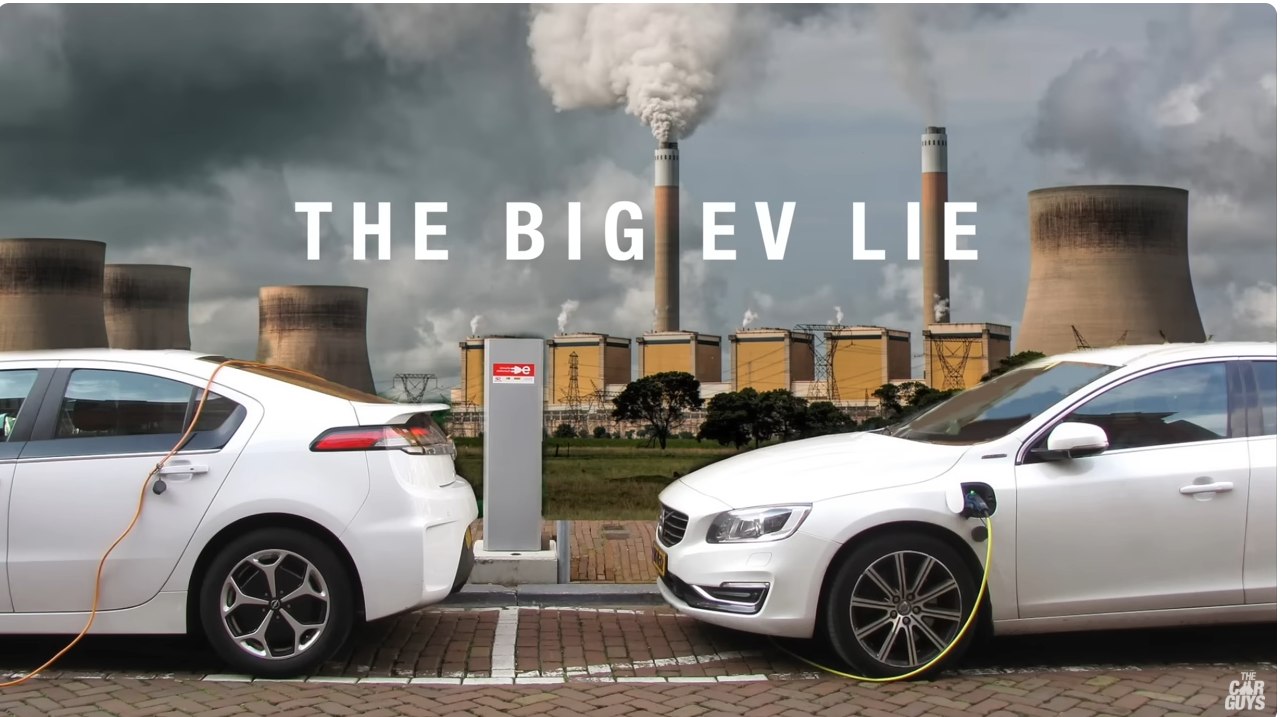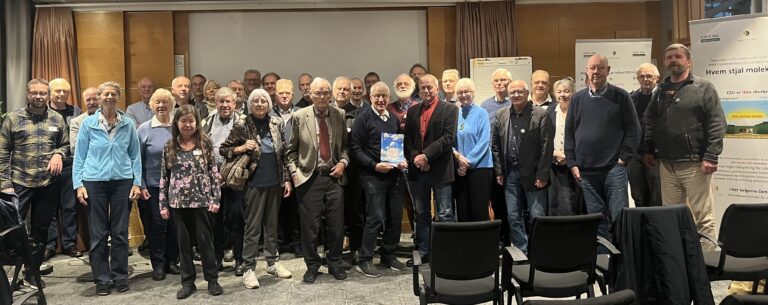Tege skickade mig detta tal av Václav Klaus, levererat i Aix-en-Provence den 23 augusti. Som vanligt har Klaus en del bra poänger så jag vill gärna dela det mer er.
***
Thank you for the invitation to come to Aix, for giving me a chance to address this reputable audience where I see many friends and, above all, thank you for continuing to organize the Summer University. I only don’t understand why you call it Summer University of the New Economics. Which one is the old one? We have only one, good, old economic theory and it is our adversaries who use the term ”new economics” as an attack on our views.
This year’s main topic of your gathering is ”Markets and Morality”. I hope that by choosing this title you wanted to say that there is no morality, at least in the public arena, without markets. It is an important and, again, a very old message. In our early post-communist years, I was often patronized that what we needed then was morality, whereas I stubbornly repeated that what we needed were markets. My critics argued that a strong, ex-ante infusion of morality is necessary – with the implicit expectation that they would supply it. It was the substance of my disputes with my predecessor in office, President Václav Havel. I hope the speakers at the Summer University will be on my side.
I am here already for the third time in this decade. It demonstrates – at least I wish it does – my respect for what you’re doing. I was here in August 2002 when we, at the beginning of the second post-communist decade, started to reassess our journey from communism to a free society. The title of my speech then was ”Post-Communist Era: Atmosphere of Victory or of Lost Illusions?”. We had a mixed feeling at that time. We had rapidly liquidated the formal structures and mechanisms of the communist society and successfully established parliamentary democracy and market economy.
The question was if we were building free society based on classical liberal principles or if we – instead – had fallen into another blind alley of regulated society, of unproductive welfare state, of brave new world of European socialdemocratism and of empty and artificial Europeanism. My answer to that question was that the winner of the transition decade was democracy, not freedom or classical liberalism. Our original slogan: ”deregulate, liberalize, privatize” was gradually transformed into a different one: ”regulate, adjust to all kinds of standards of the most developed and richest countries, listen to the partial interests of the NGOs and follow them, get rid of your sovereignty and put it into the hands of international institutions and organizations.”
This year we celebrate already the 20th anniversary of the fall of communism and we are again in a reassessment mood. The situation has not changed for the better.
At my second visit here in August 2006, the title of my presentation was ”What is Europeism (or What Should not be the Future for Europe)?” (CEP, Center for Economics and Politics, Prague, 2006). Europeism is, for me, an inconsistent, evidently heterogeneous, but in principle neosocialist doctrine, characterizing the current thinking in Europe. It believes neither in freedom, nor in spontaneous evolution of human society. It is a ”conglomerate of ideas” that includes
– economic (or social) views based on the concept of the so called social market economy (which is the opposite of the market economy);
– views on freedom, democracy and society based on collectivism, social partnership and corporatism, not on classical parliamentary democracy;
– views on European integration, which favor unification and supranationalism;
– views on foreign policy and international relations based on internationalism, cosmopolitism, abstract universalism, multiculturalism and on denationalization.
To my great regret, I am afraid the same speech should be repeated today. Europe is more and more dominated by this way of thinking despite the fact that it is an extremely naïve, unpractical and romantic utopism, not shared by Europe’s silent majority, but predominantly by European elites.
Looking back, I am surprised that in 2006 I did not mention environmentalism and global warming alarmism as a new threat to our freedom and prosperity. My book ”Blue Planet in Green Shackles” – after its Czech, English, German, Dutch, Russian, Polish, Spanish, Bulgarian and Italian editions – has now a French version with the title ”Planète bleue en peril vert.” I would like to thank all those who helped to make this publication possible, most of all Professor Jacques Garello.
I am more and more convinced that the real threat is not global warming itself. The real threat is playing with the climate (and with all of us) by irresponsible politicians and all kinds of environmentalists. I tried to express this view of mine in a question I raised in the subtitle of my book ”Qu’est-ce qui est en danger: le climat ou la liberté?” My answer to this question is clear and straightforward: ”C’est la liberté qui est en danger. Le climat va bien.”
One frequent misunderstanding needs to be dispelled. People tend to confuse two conceptually different things – a rational protection of the environment and an irrational attempt to protect (or even to fight) the climate. I am very much in favor of rational efforts when it comes to the environmental protection because we have to take care of our rivers, lakes, seas, forests and air, but I resolutely reject any attempts to change – or as I frequently hear – to combat the climate.
The current Global Warming Debate is not about temperature or CO2 levels. It is also not part of a scientific dispute inside climatology. It is an ideological clash between those who want to change us (rather than the climate) and those who believe in freedom, markets, human ingenuity, and technical progress. It is a dispute about us, about people, about human society, about our values, about our habits, about our way of life. Temperature fluctuations are only an instrument, not a real object of interest for those who play that game.
The advocates of global warming alarmism ask for an almost unprecedented expansion of government intrusion, of government intervention into our lives and of government control over us. We are pushed into accepting rules about how to live, what to do, how to behave, what to consume, what to eat, how to travel. It is unacceptable. Radical, human freedom and prosperity endangering measures and policies owing to global warming are not necessary.
The available evidence tells us quite convincingly that:
1. The warming we witness is not global. It materializes in the cold, but not in tropical regions, in dry, not wet areas, in the winter, not in the summer, and during the nights, not during the days.
2. The warming is not large. The average global temperature increase in the last century was only 0.74 °C. In addition to it, the climate stopped warming more than a decade ago altogether. The temperature now is similar to the temperature in the year 1940, regardless of a huge increase in CO2 emissions.
3. The warming is not unique and unprecedented. The temperature in the Medieval Warm Period and in many other moments of history was higher than it is now.
4. The mild warming we experience is not dominantly man-made or CO2-made. There are many other factors influencing the temperature and climate and the whole very complex climate system is still full of major uncertainties. One author recently calculated that the term ”uncertain” or ”uncertainties” appear more than 1300 times in the text of the 2007 IPCC Assessment Report.
We have to come up with an optimistic message that human adaptation, human flexibility, technical progress and the markets themselves will be sufficient to deal with all future potential problems of that kind.
The last topic I would like to mention here today is the current financial and economic crisis. The economic profession, the politicians, as well as the public did not expect it to come. They all accepted the validity of the so called ”Great Moderation” hypothesis based on the belief in the omnipotence of central banks and governments to control the macroeconomy and in the feasibility, rationality and positiveness of microeconomic regulation, especially in financial and banking sectors. This hypothesis was, of course, wrong and the dream about the eternal removal of business fluctuations did not materialize.
The current crisis is a consequence of a combination of government failures. On the macroeconomic side, it was the unprecedented build-up of imbalances in the world economy and the unusually long period of low real interest rates. On the microeconomic side, the existing partial and very imperfect regulation distorted the behavior of banks and financial institutions and motivated them to look for ways to escape it by means of various ”financial innovations”. They found it relatively easy to move their activities outside the regulatory perimeter, the most known example of this is the securitization of subprime mortgage credit.
I am convinced that the current crisis is not the result of a market failure or of any inherent deficiency of capitalism. It is a government failure, resulting from the immodest and unhumble ambitions to control such a complex system as society and economy.
I believe this is what the whole Summer University is about.
(Václav Klaus, 31st Summer University of the New Economics, Dinner Speech, Hotel Roy René, Aix-en-Provence, France, August 23, 2009.)
***






Hade vi haft Vaclav Klaus i Sverige hade jag vetat vem jag ska rösta på 2010. Tyvärr finns det ingen i närheten…
Ja Hans, tänk om Klaus tagit över i EU istället för Fleksnes…
Karln borde rent av nomineras till Nobels fredspris ta mig tusan.
Håller med ## 1 – 3 !
Mvh/TJ
Inte att undra på att Vaclav Klaus är en paria inom EU-eliten. Hans öppna klarspråk (om bl.a. klimathotets instrumentella syfte) hotar allt vad EU står för: regleringar, subventioner och mer makt åt den EU-politiska klassen.
En riktig rakryggad Statsman.
http://sydsvenskan.se/varlden/article551973/Tjeckien-vill-falla-EU-fordraget.html
Fredrik Reinfeldt har en mardröm:
Tjeckiens president Vaclav Klaus tänker sabotera Lissabonfördraget
Vad händer med Köpenhamn??
Först Vaclav Havel, nu Vaclav Klaus. Vad är det med tjeckerna som får dem att ständigt välja politiker med moralisk resning och intellektuell skärpa, när vi andra bara väljer trötta opportunister?
Mycket tänkvärt tal. Önskar att våran Fredrik hade samma inställning till frihet och klimatfrågan. Ta dessa kloka ord som exempel:
The advocates of global warming alarmism ask for an almost unprecedented expansion of government intrusion, of government intervention into our lives and of government control over us. We are pushed into accepting rules about how to live, what to do, how to behave, what to consume, what to eat, how to travel. It is unacceptable.
Det är symptomatiskt att de människor som levt under ”rött” förtryck, känner igen eländet, när de nu håller på att pådyvlas samma ofrihet och förtryck igen, men denna gången under ”grön” flagg.
Nån som erinrar ishockey-VM i Sthlm, -99 [eller när det nu var..] o tröjorna..?
Det finns otrolig kraft hos ’massor’ som är och/eller har blivit undertryckta av kollektivismens vansinnen.
Hur lång tid må det ’ta’ innan ’die dummen Schweden’ fattar att sammanlunda pågår nu/idag..?
Mvh/TJ
Vaclav Klaus är ju ganska ensam om sin analys av finanskrisen som en följd av för mycket statlig reglering av finansmarknaderna. Men naturligtvis gör detta honom extra trovärdig hos ”skeptiker” av olika slag, eftersom ”skeptiker” tydligen attraheras starkt av personer som tycker precis tvärtemot vad alla andra tycker (oavsett vilka sakfrågor det handlar om). Kan det vara så att det är viktigare för en skeptiker att ha en avvikande åsikt än att försöka hitta korrekta slutsatser?
(Sedan är det ju lite komiskt att läsa att just AGW-aktivister försöker bestämma vad människor ska göra, äta, leva, resa osv, i en tid då 20 minuter av varje timme i de kommersiella TV-kanalerna går åt till att låta kommersiella företag göra just detta…)
Anders L #12
Nej.
Anders L [12]; Vem bedömer vad som är korrekta slutsatser?
ThomasJ # 11
Jag antar att om hela Sveriges befolkning tvingades äta veganmat, så skulle det bli rätt bra fart på ” die dumme…….”
Och då inte på grund av energiinehållet i kaninfödan. 😉
Anders L #12
Klaus är inte alls ensam om att hävda att finanskrisen till stor del berodde på politiska misstag. De flesta är eniga om att politik hade en del i att orsaka finanskrisen, genom att skapa överbelåning på fastighetsmarknaden och genom finanspolitik i övrigt som uppmuntrat överkonsumtion. Frågan är hur stor del. Stefan Fölster, Svenskt Näringsliv, har i en debattartikel framfört just detta (inklusive att Obama som advokat var med och tvingade bankerna att låna ut till fattiga som inte hade råd att betala). Du kanske inte håller med Svenskt Näringsliv, men sveriges arbetsgivarorganisation kan du ändå inte avfärda som rättshaverister. Det finns också ekonomer i USA, t.ex. Peter Schiff som hävdar detta. Schiff var en av de få som förutsåg finanskrisen och blev utskrattad för det. Hans analys har alltså stor trovärdighet.
Att sen majoriteten inte har denna ståndpunkt är inget argument i sig. Till stor del är det samma personer om orsakat krisen som sitter vid köttgrytorna idag. Tror du de vill erkänna sig skyldiga.
Sen vill inte jag ursäkta den giriga och totalt inkompetenta finansbranschen. Den bär också skulden, men felet är att politikerna inte låter den ta konsekvenserna av sina usla affärer.
Det är så typiskt svenskt att avfärda alla åsikter som inte omfattas av majoriteten som allmänt suspekta. Det är också typiskt svenskt att bara en typ av åsikter framförs, och att folk som du totalt saknar kunskap om att det finns många trovärdiga personer som har avvikande uppfattningar.
En länk om solfläckar från Nasas nyhetsbrev.
http://science.nasa.gov/headlines/y2009/29sep_cosmicrays.htm?list1317154
Skrev kanske lite fel, jag kopplar automatiskt ihop det med solfläcks minimum. Vad det handlar om är att första halvan av Svensmarks teori bekräftas, den om sanbandet mellan solens aktivitet och den kosmiska strålningen. Svaret bör ligga som ett brev på posten inom ett fåtal år. Läs den här biten.
””The space era has so far experienced a time of relatively low cosmic ray activity,” says Mewaldt. ”We may now be returning to levels typical of past centuries.”
Mao så är den varma perioden slut för alla nu levande om Svensmark har rätt.
Anders L: läs Johan Norbergs ”En perfekt storm” så får du en väldigt välskriven och pedagogisk förklaring till de bakomliggande orsakerna till finanskrisen. Så ensam är inte Vaclav Klaus.
Klaus är verkligen beundransvärd. ”Klimatspelet” har dock så många olika aktörer med varierande motivationer.
EU-nomenklaturan är bara en av dem – girigare än våra bankdirektörer, korrupta och maktgalna.
Jag hade i går ett eMailutbyte med en av Sveriges mest framträdande klimatforskare, som tyckte man skulle sluta hacka på Mann-kurvan och lämna den bakom sig. Jo – den är pinsam och felaktig – så man kan förstå denna attityd. Men ingen av dem gör minsta försök att rätta till att politiker och allmännhet fortfarande ser den som en sanning.
Sjukt bra!!!!!!!!
Från NASA-artikeln: ”The space era has so far experienced a time of relatively low cosmic ray activity,” says Mewaldt. ’We may now be returning to levels typical of past centuries.'”
Spännande. 🙂